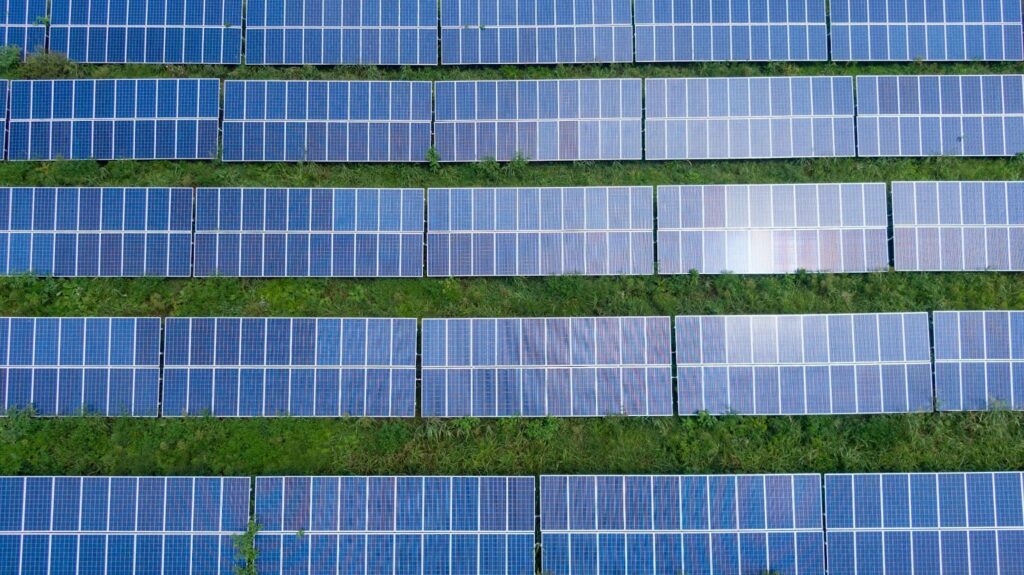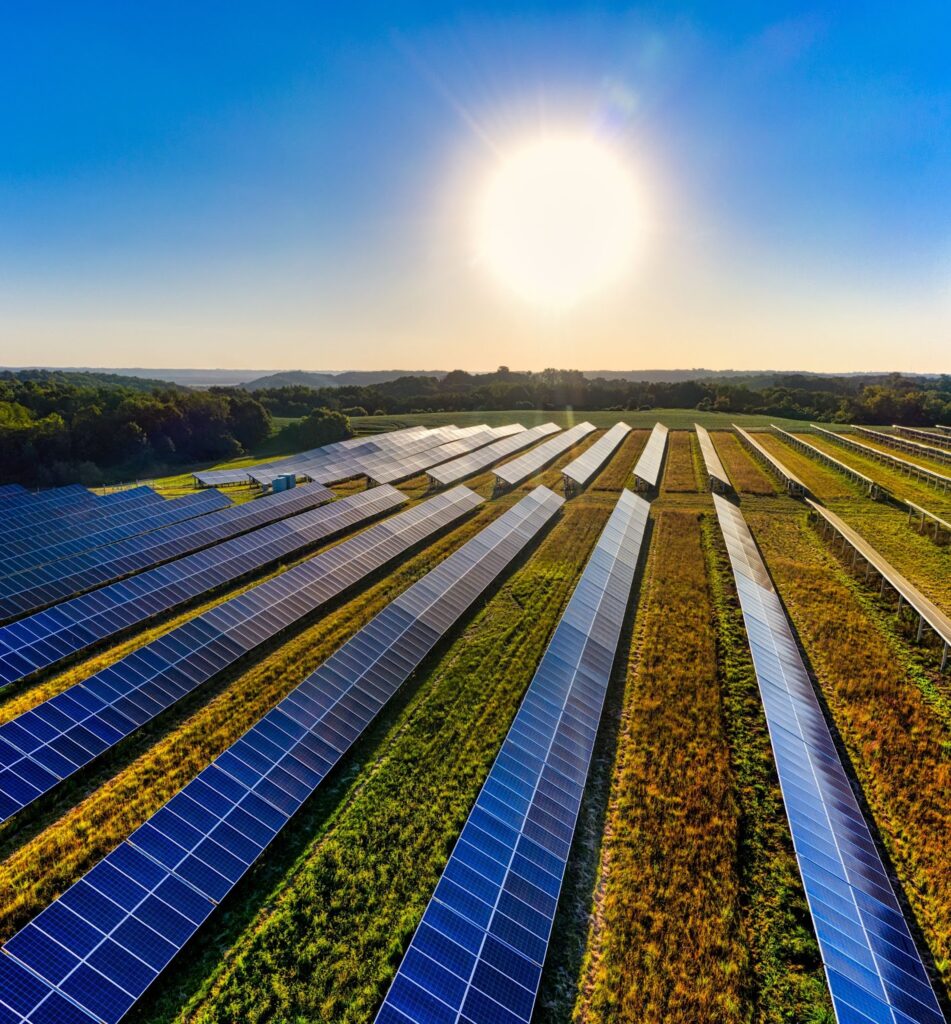
Colorado is currently one of the fastest-growing states for solar energy, and this is in part thanks to Jared Polis and his administration’s clean energy roadmap.
This roadmap saw the introduction of over 30 bills aimed at helping Colorado reach 100% renewable energy by 2040.
SB-092 is an additional bill that was approved in May 2023 and came into effect on August 7th, 2023. Although it doesn’t form part of the original roadmap, it nevertheless plays an important role in Colorado’s green energy future.
Here’s everything you need to know about the bill and how it will benefit farmers in Colorado.
In a Nutshell
- SB-092 was developed by COSSA and the Polis administration. It aims to remove financial barriers and open up more opportunities for agrivoltaics and floatovoltaics research projects in Colorado.
- Certain agrivoltaics equipment will be exempt from property tax if used in the required manner.
- $500,000 has been set aside as a grant fund, awarded to successful applicants.
- Farmers, ranchers, and agricultural businesses can apply.
- The closing date for 2023 was October 27th, but we hold out hope the grant will also be made available in the next fiscal year.
What is Bill SB-092?

Bill SB-092 was developed by COSSA and the Polis administration and is aimed specifically at farmers and agricultural businesses that want to take advantage of a farming practice called “agrivoltaics.”
Essentially, this is where a solar energy installation and farming or livestock rearing exist on the same piece of land.
Agrivoltaics has been in use for the past few decades around the world with great success, but it is only starting to catch on in the USA. If you’d like to understand the subject in a little more detail, we have a full article on agrivoltaics and its benefits.
To encourage Colorado farmers to adopt agrivoltaics practices, bill SB-092 breaks down financial barriers by offering additional tax incentives and grant funding.
Here’s what we know so far:
- The Agricultural Drought and Climate Resilience Office will award grants for new or ongoing projects that demonstrate or study the use of agrivoltaics.
- The Colorado Water Conservation Board is required to study the feasibility of using floatovoltaics (solar panels placed over, near, or floating on irrigation canals or reservoirs).
- The Director of the Division of Parks and Wildlife will consult on the impacts on wildlife of any research projects for which the office awards money to study the use of agrivoltaics as well as the feasibility of using floatovoltaics in the state.
- Certain agrivoltaic equipment will be exempt from property taxation if the equipment is used in the required manner.
- The bill appropriates $611,870 for the 2023-24 state fiscal year from the general fund, of which $500,000 can be awarded as grants for agrivoltaics projects.
What is COSSA?

COSSA, otherwise known as the Colorado Solar and Storage Association, is a nonprofit association championing Colorado’s solar industry.
Its aim is to promote and expand solar and solar storage within the state of Colorado and help its people prosper through the generation of clean solar energy.
The association is deeply involved with government environmental policies and works alongside solar business members to accelerate and improve clean energy policies.
COSSA also helps break down market barriers that prevent solar energy from advancing in Colorado and identifies emerging trends for solar in the state.
The SB-092 bill is one such example of the great progress COSSA has made alongside the Polis administration to open up solar opportunities for Coloradan rural businesses.
How Can Colorado Farmers Qualify for an Agrivoltaics Research and Demonstration Grant?

Farmers who are willing to take up an agrivoltaics project on their land can apply for the grant, as long as the proposal is deemed eligible.
Right now, these kinds of projects are a relatively new concept in the US and many see them as complicated. However, agrivoltaics has been used with great success in other parts of the world. As more US-based farming businesses take up the mantle and adopt agrivoltaics, we hope that this will pave the way and make it easier for everyone else.
Eligible project types include:
- The construction of an agrivoltaics system or demonstration project.
- An expansion of an existing agrivoltaics demonstration project.
- Research projects of agrivoltaics that focus on the benefits tradeoffs, and incremental costs of the farming practice.
- Outreach and communication projects that are focused on the benefits and/or obstacles of agrivoltaics.
- Other projects that advance the research into agrivoltaics.
A perfect example of what an eligible project could look like would be Jack’s Solar Garden based in Longmont.
In relation to a solar installation for agrivoltaics purposes, the grant can cover:
- Construction costs, including materials and labor
- Permitting
- Contractor payments
- Indirect costs (maximum 5% of grant award)
A grant award is limited to a maximum of $249,000 per application.
When is the Application Deadline?

Here’s the sticking point. Bill SB-092 is well underway and unfortunately, the application window closes on October 27th, 2023.
The final report of the findings and outcome of qualified projects is due in the summer of 2024.
Why are we telling you about this so late in the day?
Well, the introduction of grants such as this paves the way for future opportunities. While the window may have been missed for 2023, there could be a renewal of grant funds made available for 2024.
We’ve already seen this happen with the REAP grant, which was doubled in 2023 and can now cover up to 50% of a solar installation cost. In 2022, it only covered 25%.
It’s worth keeping an eye on the agrivoltaics grants page to see if it gets updated and renewed for the next fiscal year.
We will certainly be keeping close tabs on bill SB-092 and we will inform our readers the moment any news is released.
How Can Colorado Farmers Qualify for an Agrivoltaics Property Tax Exemption?

There’s nothing specific that you need to do. Essentially, the bill exempts certain agrivoltaics infrastructure from personal property taxes for tax years 2024 through 2029.
This has been achieved by updating the existing statutory definition of “solar energy facility” to include agrivoltaics and aquavoltaics for the purposes of property valuation.
While there’s no solid data on how much solar raises a farm’s value, according to Zillow, a solar installation will increase a home’s value by 4.1%. So, while you could get an extra 4.1% when selling the property, this portion of the home’s value would not be subject to property tax.
How Can I Find Out More About Bill SB-092?
The full guidelines of the Agrivoltaics and Demonstration Grant Program can be viewed here, the grant application instructions can be found here, and the revised fiscal note for the bill is here.
If you’re interested in the grant and want to hold out to see what the next fiscal year has in store, we recommend familiarizing yourself with the application instructions and what documentation is required. That way, as soon as the news is announced, you will already know what you need to do to apply.
How Do I Get Started With Solar?
In the meantime, if you would like to know more about solar energy and how it can benefit your farm, please don’t hesitate to get in touch with 8760 Solar.
We specialize in providing solar to farms and agricultural businesses, and if you have a plan for agrivoltaics, we can help you with that also. We’ll provide you with a full analysis of your farm to understand what type and size of system you need, as well as an accurate quote.
Text READY” to 719 470-0254 or get in touch via email: sales@8760solar.com. We’re looking forward to talking with you.
Frequently Asked Questions
How Does Bill SB-092 Help Farmers in Colorado?
Bill SB-092 is designed to promote and encourage the adoption and research of agrivoltaics and floatovoltaics projects in Colorado. This is achieved via grant funding and a property tax exemption for agrivoltaics and floatovoltaics systems.
What is Agrivoltaics?
Agrivoltaics is the name given to farming or livestock rearing that takes place on the same piece of land where solar panels are installed. This setup gives the land a dual purpose and removes having to make the difficult choice of whether to use the land for farming or for solar energy.
What is Floatovoltaics?
Floatovoltaics refers to the practice of placing solar panels across, near, or floating on irrigation canals, reservoirs, and other bodies of water.
How Can Agrivoltaics Benefit My Farm?
Agrivoltaics allows you to benefit financially by using the land for growing produce as well as harvesting energy. The shade from the solar panels improves water retention in the soil and provides protection and an ideal microclimate allowing sensitive crops to thrive.
What Can I Grow Using Agrivoltaics?
Agrivoltaics is suitable for shade-tolerant crops, such as lettuce, spinach, tomatoes, pepper, and kale. Root crops, such as potatoes, radishes, beets, and carrots, also thrive under an agrivoltaic system.
